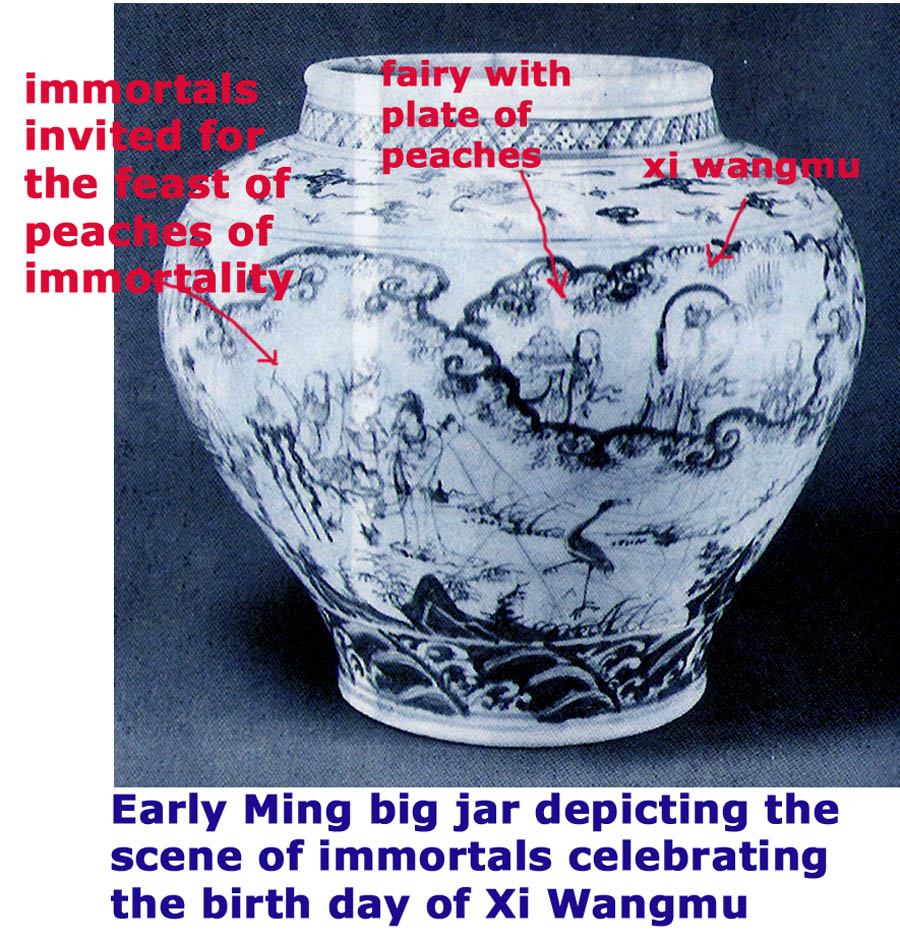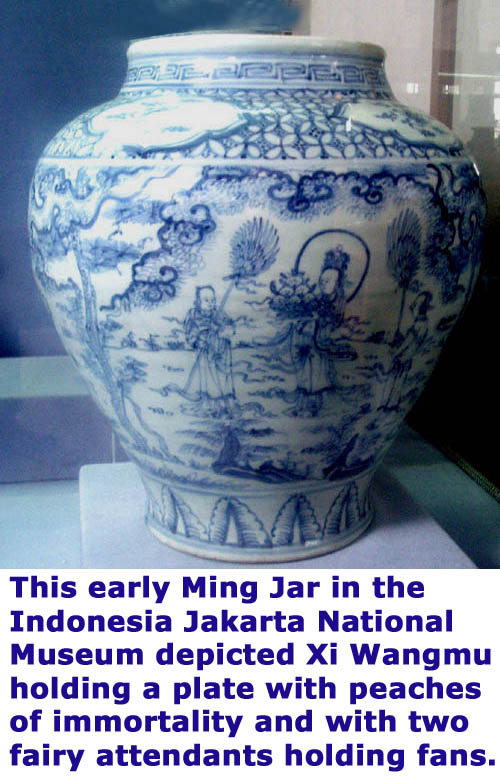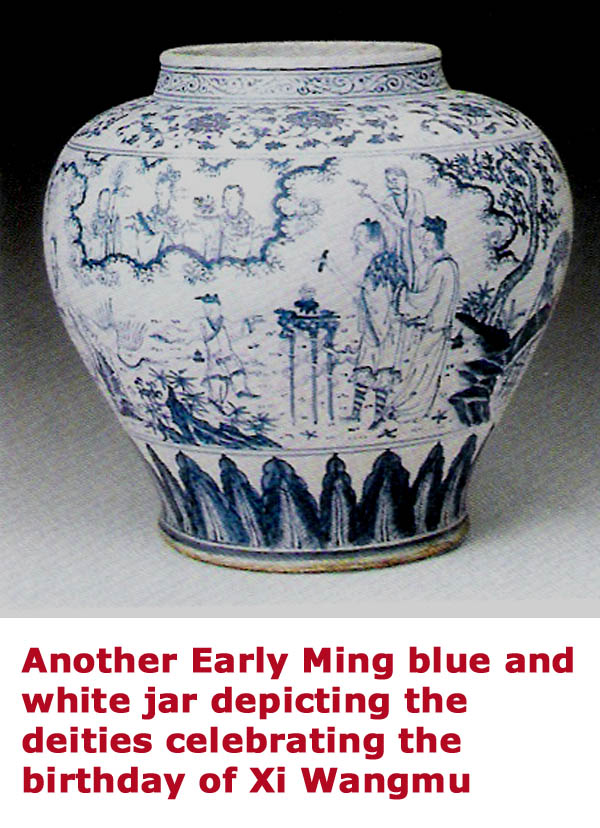
Xi Wang Mu (Queen Mother of the West)
The name Xi Wang Mu means Queen Mother of the West. The earliest reference to this deity was a Shang dynasty oracle bone inscription which refers to making "offering to the Eastern Mother and the Western Mother." Early description depicted her as a fearsome goddess with the teeth of a tiger and tail of a leopard. During the Han Dynasty, she was usually depicted with a nine-tail fox as company. In the classic 'Guideways through mountains and Seas', San haijing (山海经),dating to before 4th century BC, she was described as a goddess who had the power to inflict disaster, disease and punishment on mankind.
Her image evolved over time and she was finally depicted as a beautiful and benign queen of all deities in the Daoist pantheon. In the writings of the Taoist writer Zhuangzi (庄子)(c. 4th century BC), it is mentioned that: “Nobody knows her beginning, nobody knows her end.”
She is said to reside in the Kun-lun mountains, near the Lake of Jewels. In her garden, there is a peach tree which yielded peaches of immortality every 6000 years. Xi Wang mu would invite the immortals to a feast of the peaches to celebrate her birthday.
There were stories of her meeting Zhou Dynasty King Mu and Han Emperor Wudi. She disclosed to Wudi that Dong Fangshuo , a Han court official, is a deity. In another mythical tale, she gave the elixir of immortality to Houyi. But Houy's wife Chang Er took it and ended up floating to the moon where she remains since, with the moon hare as her company.
In Later stories, she is the wife of the Jade Emperor. In the story of of Zhinu (织女) and the mortal, Niulang (牛郎), Xi Wangmu is the mother of Zhinu, the weaver. In the Chinese Classic, Journey to the West (西游记), there was an episode involving the monkey god stealing the peaches of immortality from Xi Wangmu's garden.


